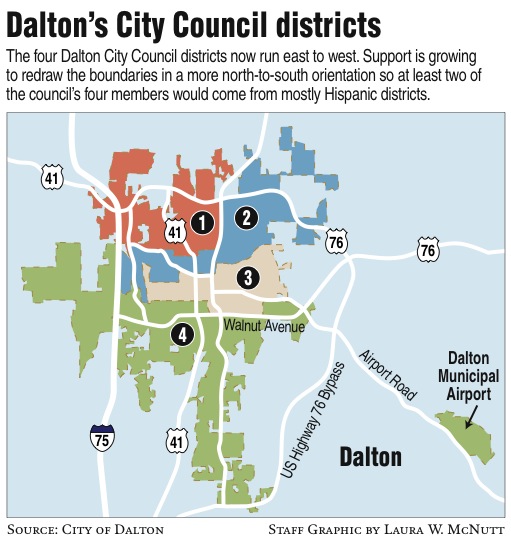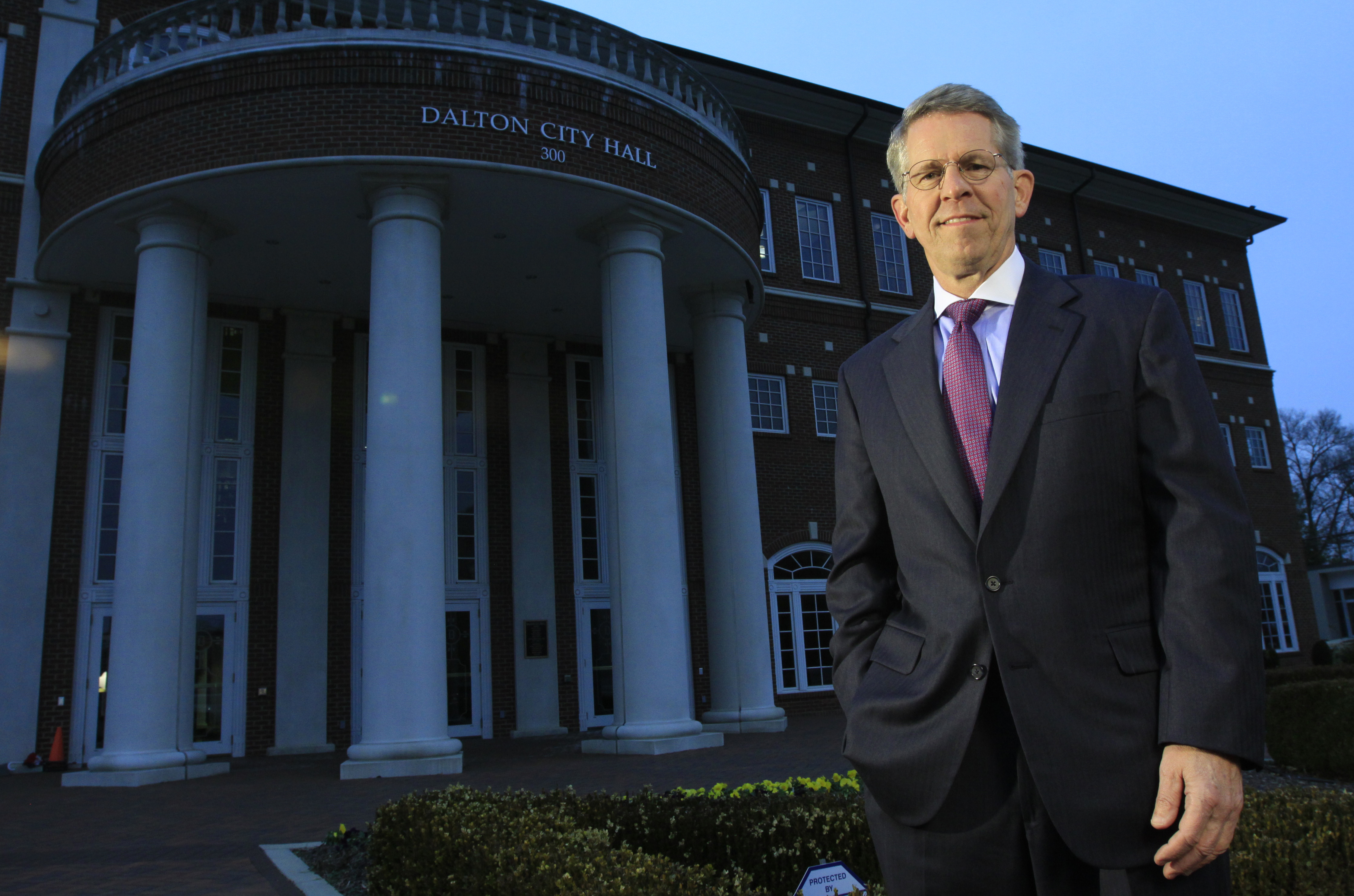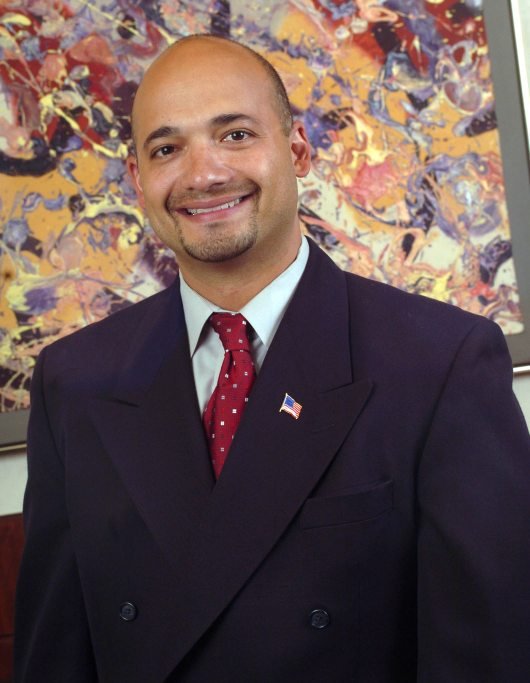DALTON, Ga. -- By the next city election in two years, Dalton candidates and voters may have a different voting system that could address concerns about lack of Hispanic representation.
City and Hispanic leaders have met to discuss changes to the at-large voting system in Dalton, which allows the entire city's residents to vote in all council races rather than just voters in the district where the candidates live.
Hispanics and city leaders say they want to resolve the issue and reach an agreement that satisfies everyone. But so far, the two groups are poles apart on exactly how the voting landscape will change.
Mayor David Pennington wants to retain at-large elections, but switch the city's four districts to run north to south rather than east to west, to reflect population patterns.
Hispanic leaders say they are willing to discuss changing district alignments, but want at-large elections eliminated.
"The sooner we do it the better," Pennington said. "I don't think it's good for the demographic process or Dalton as a city as a whole for all the elected officials to be from the same side of town. We are looking at everything possible to get people more involved in the political process."
Laughlin McDonald, director of the Voting Rights Project for the ACLU in Atlanta, said that simply changing the districts while retaining at-large elections will not adequately address the lack of representation.
"Changing the district lines doesn't change the total picture," McDonald said. "Whites will still vote for and elect whites. In addition, experience shows that the at-large system tends to depress the voting participation. Why bother to go if your vote doesn't change anything? You go through all the process and it's not going to make a difference."
NATIONAL SHIFTS
Potential changes in Dalton reflect national shifts as citizens and elected officials grapple with ensuring growing Hispanic populations access to representation in areas long dominated by white voters.
Since the Voting Rights Act was passed in 1965, changes in at-large voting districts and others mostly have been aimed at addressing discrimination against blacks.
The act prohibits a "voting qualification or prerequisite ... which results in a denial or abridgement of the right of any citizen of the United States to vote on account of race or color."
The act also covers language minorities, which is where Hispanics would fall since they are not considered a race.
In 1982, Congress amended the Voting Rights Act to prohibit any voting practice or procedure that has a discriminatory result, even without proof of intentional discrimination.
Since then, Georgia alone has seen about 100 successful challenges to at-large elections.
Chattanooga was required to change its at-large system in 1989 after a lawsuit by black residents.
After the 2000 census, not a single jurisdiction remained in Georgia where an at-large challenge could have been filed based on population, McDonald said.
But that has changed, mostly due to the increase in the Hispanic population. Across the nation, particularly in Texas and California, numerous at-large voting jurisdictions have been challenged and changed as a result of lawsuits.
"As the Hispanic population grows in Georgia, no doubt there will be lawsuits brought," McDonald said.
Jerry Gonzalez, head of the Georgia Association of Latino Elected Officials, said the organization is talking with leaders in Dalton and Gainesville about changes in those cities' election systems.
LOCAL IMPACT
Even though nearly half its residents are Hispanic, Dalton has never had an elected Hispanic member on the City Council.
Ken Ellinger, political science professor at Dalton State College, said the at-large election system is Exhibit A for why not.
"As long as you have at-large elections it's going to be extremely difficult, because at-large elections go a long way toward preventing minorities from winning," Ellinger said. "The people who vote come from the entire city and by definition the majority of the city is white, so in many of these city council races [the winners] are going to be white."
Dalton has four districts, generally running east and west. The largest population of Hispanics lives on the east side of town.
Right now, the four City Council members and mayor all live in the west side of Dalton.
Gonzalez said the Georgia Association of Elected Latino Officials believes the city is not in compliance with the Voting Rights Act, but they will work with the city to come up with a solution.
"We want to resolve the issue. We will work with the city to get them in compliance," he said. "Because ultimately it would cost the city way too much for a lawsuit."
If the plaintiffs win a lawsuit, the city would be required to pay the costs.
America Gruner, president of the Coalition of Latin Leaders in Dalton, agreed.
"What we want is to resolve this with dialogue. We don't want to create a controversy," she said.
SOLUTIONS
Pennington says switching the city's four districts so they run from north to south would ensure that at least two of the council's four members would come from largely Hispanic districts.
If the city creates by-district voting, it could take as many as 1,400 votes to elect a city council member from a district where most people vote, and only 50 votes to elect one in a district where few people vote, Pennington said.
"A big family could elect someone," Pennington said. "If you are trying to give equal representation, running the districts north to south is what makes the most sense to me."
McDonald isn't convinced, but Gruner said Hispanics are willing to consider that option and discuss it with the mayor.
"We are looking for the best way. We don't know what this is yet," she said. "If a change would follow the Department of Justice guidelines, we would consider it."
Any changes to districts would need to be approved by the Georgia General Assembly and the U.S. Department of Justice.
Both Gruner and Pennington said their ultimate goal is to get more people involved in the election process.
Pennington noted the lack of voter participation among Hispanics. The number of Hispanics registered to vote in Whitfield County has almost doubled since 2004, but still lags behind white voters.
"What they need to concentrate on is getting people to vote," he said. "If they don't vote, it doesn't matter."
The Coalition of Latin Leaders registered hundreds of people this year, Gruner said. Numbers for actual votes cast by Hispanics in the Nov. 2 city election were not available.
"We are getting people more interested," Gruner said. "It's a long process that involves education, awareness and developing skills. The Latino population is still very recent in Dalton; sometimes it takes almost a generation to have representation."
Contact staff writer Mariann Martin at mmartin@timesfreepress.com or 706-980-5824.


